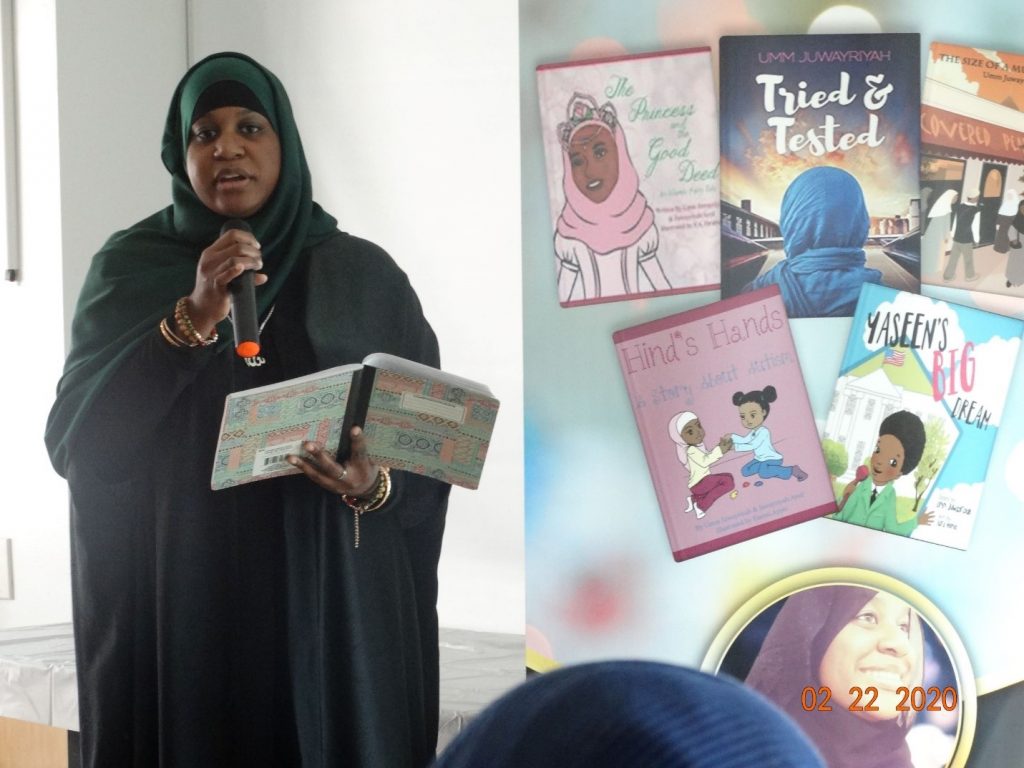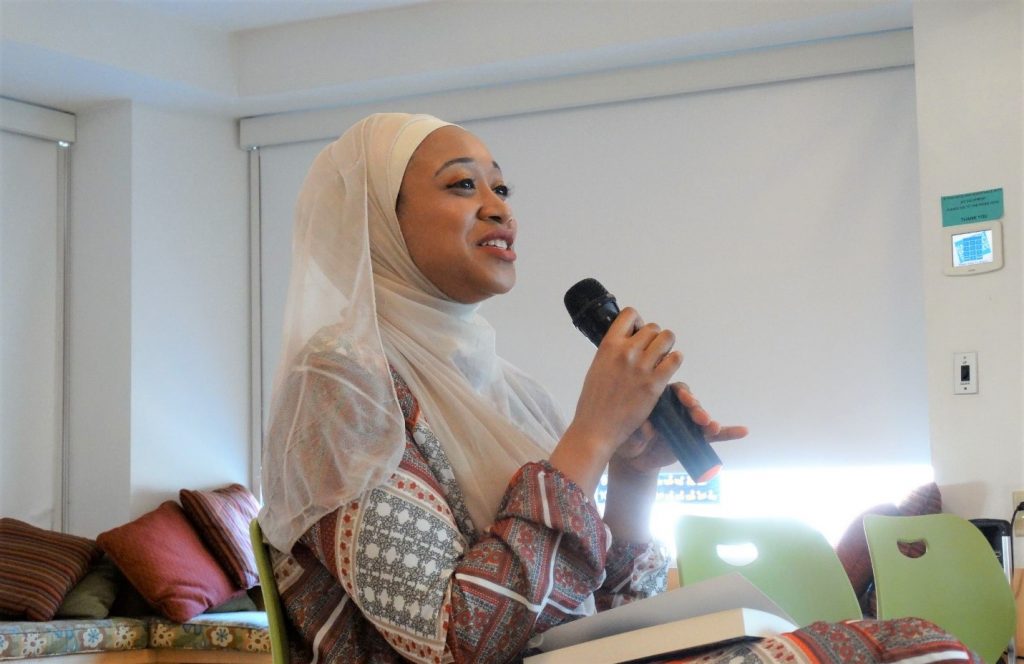
Our Voices and Language.
Many American Muslims infuse Islamic words and phrases in Arabic into their vernacular.
Muslim authors usually must decide if they will integrate terms like As-salam alaykum, bismillah, alhamdulillah, etc. into their text, especially if they feature Muslim characters. Ali, Hutchings, and Ayed talked about writing Arabic in their books and if italics and translations are necessary.
“The best works that I have ever read come from a place where I feel like I know the writer after I read,” said Ali.
“They are so vulnerable and so truthful in their own narrative that it requires me to go outside of myself, come and meet them and enjoy their honesty and enjoy that rawness.”
“Writing is a labor of love. It is also a labor of pain. There is a lot of emotion that goes into it. As a reader, I think it is an honor to hold those words, and to hold that story and for me [then to] do some work, as the author has already done the work to present it.
“[When] translating, it centers the gaze of whoever the reader is—whatever they can understand and experiences they have. It creates that as the dominant. Whatever I have [as a writer] should get the back burner, and I should be doing the work to come and meet you when you should be doing the work [as a reader] to come and meet me. So, I don’t translate.”
📚 Read Also: #BlackMuslimReads Celebrates Black History Month
Ayed explained the significance of appreciating the importance of cultural vernacular when writing about and connecting to experience as opposed to focusing on the dominant society.
“I think it is okay to tell White readers that not everything is for them,” said Ayed.
“We don’t write with the intention of making them read. I use the words I use every day—as-salam alaykum, masjid—words like that. If you don’t know what that means, you are welcome to look it up, but I’m not going to explain it to you. It messes up the flow of the book.”
“It isn’t my job to teach you my culture. This is my world. I’ve built it. If you want to look further into things, you can. If I were to think about an audience, it wouldn’t be geared towards White readers. I’m not saying they wouldn’t be able to read it, but it wouldn’t be geared towards them. That’s okay. We have a big enough following of Black [and non-Black] Muslim readers who can pick up and enjoy the book. That’s enough for me.

Author Readings
Authors delighted readers with readings from their books. Nzima Hutchings read from her books, including She Wrote It… Then Spoken Worded It. Julde Halima Ball read from her memoirs, Growing Up an American Muslim Army Brat and shared her experiences of prejudice inside and outside of Muslim culture. Haddiyah Ali treated readers with her creative nonfiction stories.
The authors inspired audience members to share their writing during the open mic session.
Pages: 1 2